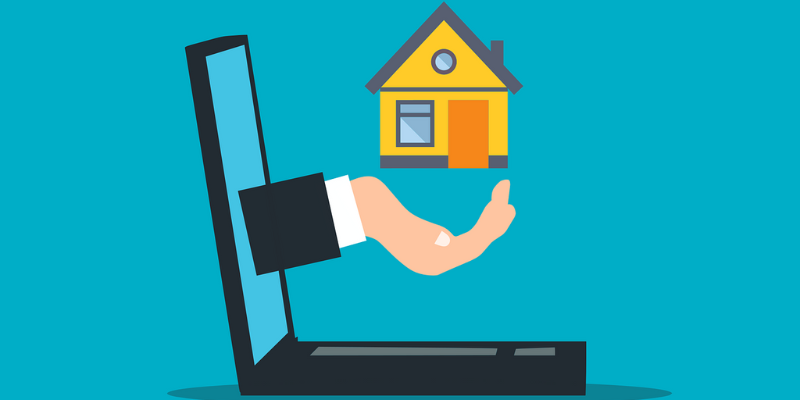In today’s fast-paced world, technology has become an integral part of almost every industry, including real estate. With the rise of property technology (proptech), real estate professionals can now streamline their operations and enhance their service delivery to clients. From virtual tours to smart home automation systems, proptech is revolutionizing the way properties are bought, sold, leased and managed. In this blog post, we’ll explore the numerous benefits that proptech offers for real estate professionals looking to stay ahead in a highly competitive market.
Introduction to Property Technology
Technology has become a staple in nearly every industry, and real estate is no different. Property technology, also known as proptech, is the use of technology to solve problems in the real estate industry.
Proptech can be used for a variety of purposes, from streamlining the home-buying process to making it easier to find a rental property. And for real estate professionals, proptech can provide a number of benefits.
For one, proptech can help you save time. For example, if you’re looking for a new property to list, you can use proptech tools to quickly search for homes that meet your criteria. You can also use proptech to automate repetitive tasks, like sending listing updates to clients or creating marketing materials.
Proptech can also help you reach new clients and grow your business. For example, you can use proptech tools to create an online presence for your business or to market your listings to a wider audience. You can also use proptech to connect with other real estate professionals and build referral relationships.
Proptech can help you improve the quality of your services. For example, you can use proptech to research properties before showing them to clients or to keep track of client feedback after showings. You can also use proptech to stay up-to-date on industry news and trends or to find new resources for your business.
Benefits of Property Technology for Real Estate Professionals
Property technology, or “proptech,” has revolutionized the real estate industry in recent years. By harnessing the power of technology, real estate professionals can now provide their clients with a better overall experience. Here are some of the benefits of proptech for real estate professionals:
Increased efficiency and productivity: Proptech tools and applications can help streamline the property search process for both buyers and sellers. For example, online listing platforms such as Zillow and Redfin allow users to search for properties based on specific criteria (location, price range, number of bedrooms, etc.). This makes it easier for buyers to find properties that meet their needs, and saves real estate agents time spent showing properties that aren’t a good fit.
Improved communication and collaboration: Proptech also allows for improved communication between real estate agents and their clients. With email, text messaging, and video conferencing capabilities, agents can easily stay in touch with their clients throughout the property transaction process. Additionally, many proptech applications offer secure document sharing features, which makes it easy to share documents (such as purchase contracts) with all parties involved in the transaction.
Greater transparency: One of the most important benefits of proptech is that it provides greater transparency throughout the real estate transaction process. With proptech tools like electronic signatures and blockchain-based smart contracts, all parties involved in a transaction can view and track progress in real-time
How to Get Started with Property Technology
If you’re a real estate professional, it’s time to get on board with property technology. Here are some tips to get started:
Familiarize yourself with the different types of property technology available. There’s a wide range of products out there, from simple listing management software to more sophisticated tools that can help with marketing, transactions, and even building maintenance.
Do some research to find the right fit for your needs. Not all property technology is created equal. Some products are better suited for certain types of businesses or properties than others. Talk to other real estate professionals and read online reviews to get insights into which products might be a good fit for you.
Get in touch with a property technology vendor. Once you’ve identified a few potential options, reach out to the vendors and request more information or a demo of their products. This will help you get a better sense of how the product works and whether it’s something you could see using in your business.
Implement the technology in your business. Once you’ve selected a product, it’s time to start using it! Make sure to train your staff on how to use the new tool and integrate it into your existing processes. With the right property technology in place, you’ll be able to streamline your operations and provide a better experience for your clients.
Best Practices for Implementing Property Technology
When it comes to property technology, there are a few best practices that real estate professionals should keep in mind to ensure a successful implementation.
First and foremost, it’s important to have a clear understanding of what technologies are available and how they can be used to benefit your business. There’s no point in investing in technology that you don’t fully understand or that won’t actually help you achieve your goals.
Once you have a good grasp on the different types of property technology, it’s time to start thinking about which ones will work best for your specific needs. Not all technologies will be right for every business, so it’s important to carefully consider which ones will be the most beneficial for you.
Once you’ve selected the right technologies for your business, it’s time to start implementing them. This is where many businesses make mistakes – they either try to do too much at once or they don’t put enough thought into their implementation strategy.
To avoid these mistakes, take your time and implement each new technology one at a time. This will allow you to properly learn and use each new technology before moving on to the next one. Additionally, make sure you have a solid plan in place for how you will use each technology before implementing it. By taking these precautions, you can avoid any major issues and ensure that your property technology implementation is successful.
Challenges and Potential Issues with Property Technology
As with any new technology, there are always potential challenges and issues that arise. Here are a few potential challenges and issues with property technology:
Security risks – As more and more property information is stored online, there is an increased risk of hacking and data breaches. This could lead to sensitive information being leaked or stolen, which could be disastrous for both the property owners and the real estate professionals involved.
Cost – Implementing new technology can often be costly, both in terms of the initial investment and ongoing maintenance costs. This may be a barrier for some real estate professionals, especially those who are operating on a tight budget.
Change management – Introducing new technology can often be disruptive and require significant change management within an organisation. This can be challenging for organisations to achieve, especially if they don’t have the right resources or expertise in place.
User adoption – Even if an organisation is able to successfully implement new property technology, there’s no guarantee that users will actually adopt and use it. If users don’t see the value in the technology or find it too difficult to use, they’re likely to stick with the status quo.
Recommendations for Real Estate Professionals
There are many benefits of property technology for real estate professionals, including:
Increased efficiency and productivity – Property technology can help streamline processes and make it easier to manage properties, leading to increased efficiency and productivity.
Improved customer service – Property technology can help you provide better customer service by giving you access to information and tools that can help you meet your clients’ needs.
Enhanced marketing capabilities – Property technology can give you the ability to reach a wider audience with your marketing efforts and connect with potential buyers and sellers more easily.
Greater insight into the market – With property technology, you can gain valuable insights into the real estate market, which can help you make better decisions about investment opportunities.
Access to new technologies – As a real estate professional, you’ll have access to new technologies that can help you stay ahead of the curve in an ever-changing industry.
Improved profitability – Property technology can help you save time and money, which can lead to increased profitability.
Conclusion
In conclusion, property technology is a must-have tool for real estate professionals looking to stay ahead of the competition. It can help increase productivity, optimize processes, and provide valuable insights into the market. By utilizing this technology, real estate agents will be able to offer their clients top-notch services while also increasing their own profits. With so many benefits to reap from implementing property tech into business practices, it’s no wonder why more and more industry professionals are turning towards these solutions.













